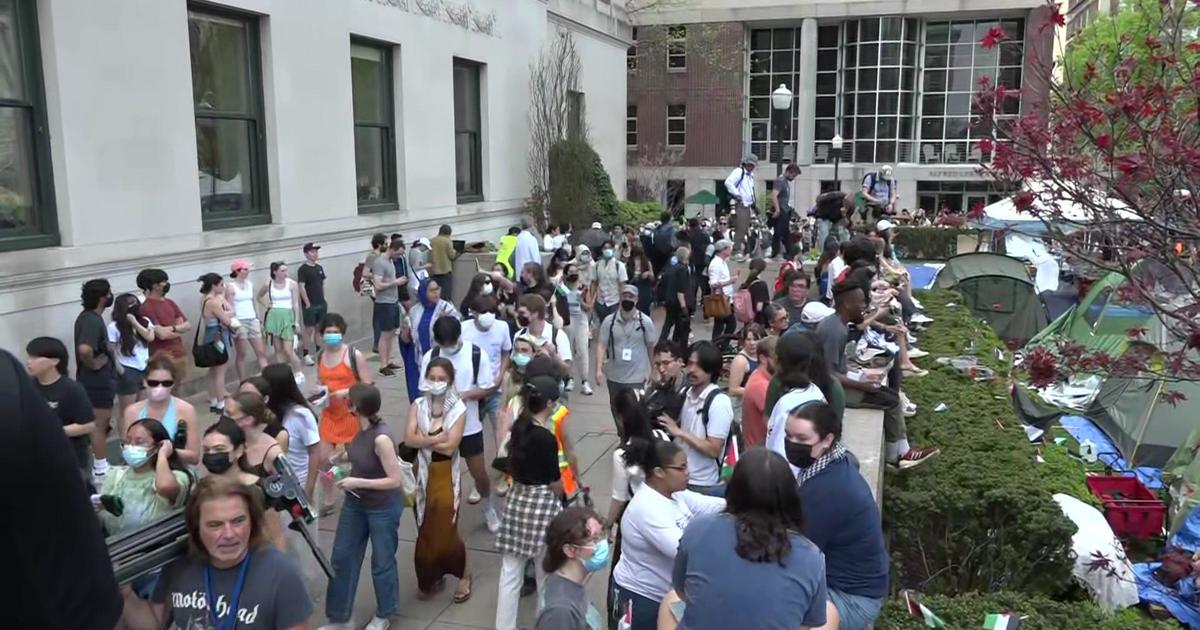Gamblers Spending Less Time, Money In AC Casinos
ATLANTIC CITY, N.J. (AP) -- The amount of time gamblers are spending in Atlantic City casinos is falling, and they're holding on more tightly to their wallets while they're there.
A new statistical study shows the amount of time gamblers spent inside casinos in the nation's second-largest gambling market is down more than 22 percent, and the amount of money they spend there is down almost 30 percent over the last four years.
And the hit to the casinos' bottom line is substantial: gross operating profit per hour is down 61 percent.
George Cosgrove, a 69-year-old retiree from Whiting, N.J., comes to Atlantic City once a month with his wife, visiting a different casino each time. One day last week he was taking a break on a Boardwalk bench outside the Atlantic City Hilton Casino Resort, which hasn't paid its mortgage in more than a year and a half and which reported $4.7 million in gross operating losses in the third quarter compared to gross operating profits of $888,000 a year ago.
"It's easy to see for yourself -- go in there, and there's hardly anybody in there," Cosgrove said, motioning to the Hilton. "There's probably half of what there was on a weekday a year ago. The business is just not there."
Cosgrove estimates he and his wife are spending at least 30 percent less at the casinos this year.
"We are definitely watching our money more closely," he said. "We'd love to keep doing things the way we used to, but we just can't."
Michael Pollock, managing director of Spectrum Gaming Group, which wrote the study, said the numbers show just how drastically the Atlantic City market is changing.
"It's shifting toward a visitor base that is less gambling-centric, which means they're gambling less per hour with tighter wallets," he said. "Recessions end, and when it does, what Atlantic City needs to do is diversify its customer base.
"We didn't realize it at the time, but 2006 and 2007 in Atlantic City and Las Vegas was really too good to be true," Pollock said. "People were spending more than they could afford."
That came to a screeching halt when the economy started slowing down in late 2007 and nearly crashed in 2008.
The study examined third-quarter figures from 2006 to 2010 in three areas: gross gaming revenue per visitor hour (the amount of money casinos take in for every hour a gambler is on their premises); total visitor hours, and gross operating profit per visitor hour.
The time frame was chosen to use late 2006 as a starting point just before the first slots parlors opened in the Philadelphia suburbs, ushering in a four-year revenue plunge in Atlantic City that continues unabated.
Gross gaming revenue fell from $9.13 per hour in 2006 to $6.42 for the city's 11 casinos.
Gross operating profit per visitor hour went from $2.74 in 2006 to $1.05 in the third quarter of this year -- a drop of more than 61 percent.
Corresponding hourly figures were not available for Las Vegas, the nation's largest gambling market. But it, too, has been struggling with the recession and the relentless expansion of casinos and slots parlors into local neighborhoods around the country.
Las Vegas casinos are lowering room rates enough to get people in the door, but visitors are still being tightfisted.
Gambling revenue in Las Vegas is up less than 1 percent to $6.7 billion in Clark County from January through September, even though the area has seen 2.4 percent more visitors during the first nine months of 2010 compared with the same time last year.
And 2009 was a similarly bad year: fewer people came to Vegas and they gambled even less. There were 3 percent fewer visitors than in 2008, but gambling revenue was down 9.8 percent.
Atlantic City's casino revenue fell from a high of $5.2 billion in 2006 to $3.9 billion in 2009. For the first 10 months of this year, they are at $3.1 billion, down 9.1 percent from the same period in 2009.
The study broke Atlantic City's 11 casinos into four groups by location. The three casinos in the city's marina district -- The Borgata Hotel Casino & Spa, Harrah's Resort Atlantic City, and Trump Marina Hotel Casino -- saw their gross gaming revenue per visitor hour fall by more than 41 percent over the last four years.
The three casinos in the Inlet section -- Trump Taj Mahal Casino Resort, Resorts Atlantic City and the Showboat Casino Hotel -- fared even worse, down more than 49 percent.
The Hilton and the Tropicana Casino Resort were down nearly 26 percent.
Only the midtown casinos -- Trump Plaza Hotel Casino, Caesars Atlantic City and Bally's Atlantic City -- defied the trend, seeing their gross gaming revenue per visitor hour rise by more than 11 percent over the last four years.
Don Marrandino, eastern division president of Caesars Entertainment Corp. which owns Caesars, Harrah's, the Showboat and Bally's, says the report is yet more proof that Atlantic City's business model has permanently changed from day-tripping gamblers to those who book multi-night vacations or conventions here.
"We have to continue to expand the amenities we offer and do a better job in the convention business," he said. "Some of the drop in spending is due to the recession, and we should get some of that back. But to make up for the lost revenue from gambling, we have to make more money from our nightclubs, food and beverage and convention business."



